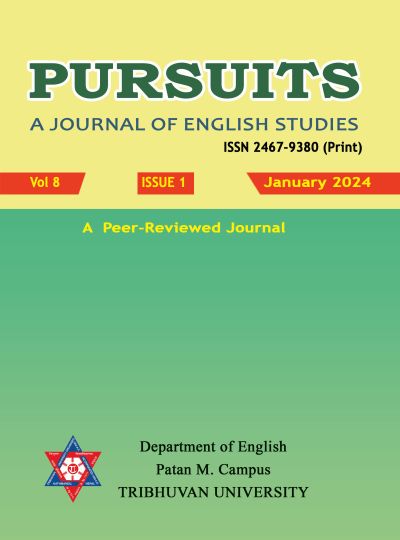Octavia Butler's Bloodchild and the Posthuman Complexities: A Process of Becoming
DOI:
https://doi.org/10.3126/pursuits.v8i1.65326Keywords:
becoming, critical retrospection, interconnectedness, posthuman complexities, speculationAbstract
This paper examines the human-nonhuman relationship for co-reproduction and co-existence between two species in Octavia Butler's speculative fiction "Bloodchild". The humans called the Terrans and the aliens called the Tlics make a contract for reciprocity to save the futurity of both. This research analyzes Butler's speculation of some posthuman complexities related to identity, gender, reproduction and forceful bonding in the far future. The multifaceted female protagonist T'Gatoi, the male human surrogacy, non-normative pregnancy and experimental birth foreground the horror of dystopian future that Butler attempts to make humans aware of. Based primarily on the textual evidence, the paper uses Donna Haraway's concept of "speculative feminism", Deleuze and Guattari's notion of "becoming" and Rosi Braidotti's theory of critical posthumanities to argue for the author's warning to humanity against futuristic crises and call for a critical thought exercise to retrospect on human tyranny, egotism and sense of otherness. It proposes that overcoming the anthropocentric rule over nature and the "others" for the sake of natural equilibrium and socio-cultural harmony can help instill collective consciousness and promote community building to save this planet and the others for a sustainable future.




